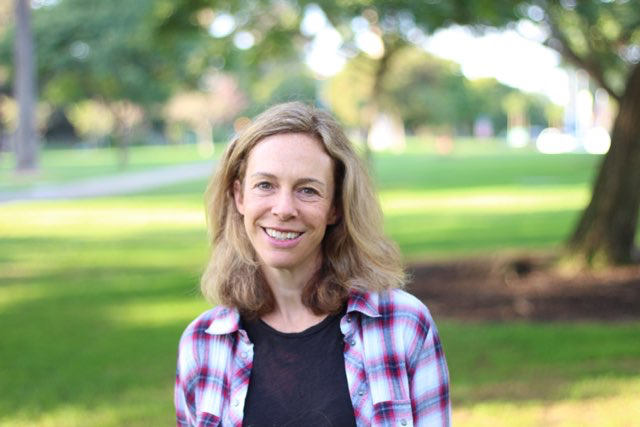Miracles Happen
In July of 1989, I glimpsed my future. It wasn’t a vision so much as a yearning, one deeper than I had known.
I was 18 years old, recovering from a tonic-clonic seizure. The nausea churned, a clean bucket at my bedside. The mid-morning sun splashed against the walls in golden streaks, though I felt no joy.
The only things that didn’t hurt were my eyes, and they were damp with tears. The wistful kind that screamed of despair and lost hope. Propping myself up in bed, I wrote a poem called “Drowning Seal.” Because that’s how I felt. Helpless as a seal drowning in the ocean.
I can see them, the moments so still, so quiet. A Separate Peace on my nightstand. The summer breeze gently shifting the curtains. The smell of freshly cut grass. I lay lost in a reverie, listening to the voice that seemed to say, yet again, I would never be rid of epilepsy.
Dreams of Outgrowing Epilepsy Begin
Diagnosed with the seizure disorder at age 2, I assumed it would be a life sentence. The thought of outgrowing it must have come from my neurologist, who suggested I taper off medicine. I went along for the ride.
July 1989 marked the second time I tried coming off anticonvulsants. The first time, at 13, I tapered off Phenobarbitol. I was off completely for a week before having a tonic-clonic seizure on the playground. Back on pills I went.
Now here I was again, about to be a senior in high school. In the seizure’s aftermath, frustration simmered. It slowly gave way to yearning — an insatiable desire to know. What is my authentic personality, unaffected by anticonvulsants? Who am I really? I felt desperate to know my true self. To understand which boundaries were self-imposed and which were not.
Each time my neurologist tapered me off, he brought me closer to that day. If not in reality, in my dreams. By traveling down these heartbreaking roads, a seed was planted. A seed of hope. Gaze out the window long enough, you start to envision things for yourself. I did. The images coalesced like a film reel.
I didn’t promise myself I would outgrow epilepsy. Never could have. But the desire to outgrow it ran so deep, it felt like a promise. Imagining a life without medicine, I clung to that vision, let it dance, spring to life. Until it breathed on its own.
Coming Off, Holding On
If you can see
And you believe
Why are you so scared
But if you don’t care
Why are we here
What do you have left
Head up, head up
Keep holding, holding
Your head up, head up
Keep holding, holding
— Chvrches, “Under the Tide”
A lot happened in the years since then. It culminated in Nov. 29, 2014. That’s when I entered the Cleveland Clinic’s Epilepsy Monitoring Unit (EMU). I was there to learn if I still had epilepsy.
In the life-altering moments of the next few days, fear dominated. But hope stayed close. The source of hope was the music, the lyrics that spoke to my heart and kept me going.
As decision time drew near, my doctor pulled up a chair. Taking my hands in hers, she whispered, “You need to do this. You’ll never have a chance like this again.”
It’s the only time a doctor has ever whispered to me. I sensed then that shit was going to go down. When it did, these were the words streaming through my earbuds: “If you can see and you believe, why are you so scared? But if you don’t care, why are we here? What do you have left?”
In the EMU, at a point in history when I’d been medicated nearly all my life, I had more left than I thought.
Saying Goodbye to Epilepsy
When the doctor-on-call walked in, I barely noticed.
He said a lot, but the only words I heard were the ones that mattered. “You do not have epilepsy. You likely have not had epilepsy for some time.”
The words rang in my ears like I was nuts. To describe the feelings bounding about inside my anxiously feverish frame is useless. I dare say, my command of English falls far short of how I felt when he spoke those words. Like the teacher talking on a Charlie Brown special, it took several moments to process it all.
In those moments, hope felt very much alive. As I write this today, it still lives.
Hope Can Be a Wondrous Thing
I’m not saying everyone who has hope will outgrow epilepsy. But I know this: You won’t get anywhere on this journey without it. I can’t say why I’m in this situation and others aren’t. If I knew the answer, I’d share it with the world.
All I can tell you is keep hope alive. Fertilize it like a flower. Sit by your window, stare out. Let the future you desire take root in your imagination. That’s how it begins.
A friend once said, “Hope is an action verb.” It’s about the actions you take while you’re hoping. For those with epilepsy, hope can be a dangerous thing. There’s so much uncertainty, and seizures are different for everyone.
As I aged, my longtime doctor did everything not to fuel my dreams, so reluctant was he to scatter them like leaves in the wind.
I don’t blame him. Hope had to spring from me. Just as it must spring from you.
I have been where you are, on the inside looking out. I have felt your pain. Not in the same way nor to the same extent. But I have felt it. I have endured the side effects, cried for the pressure, sacrificed myself to the shame.
Most of all I have yearned, as you do, for a better tomorrow. And I’m here to say, without a doubt, a better tomorrow is possible.

